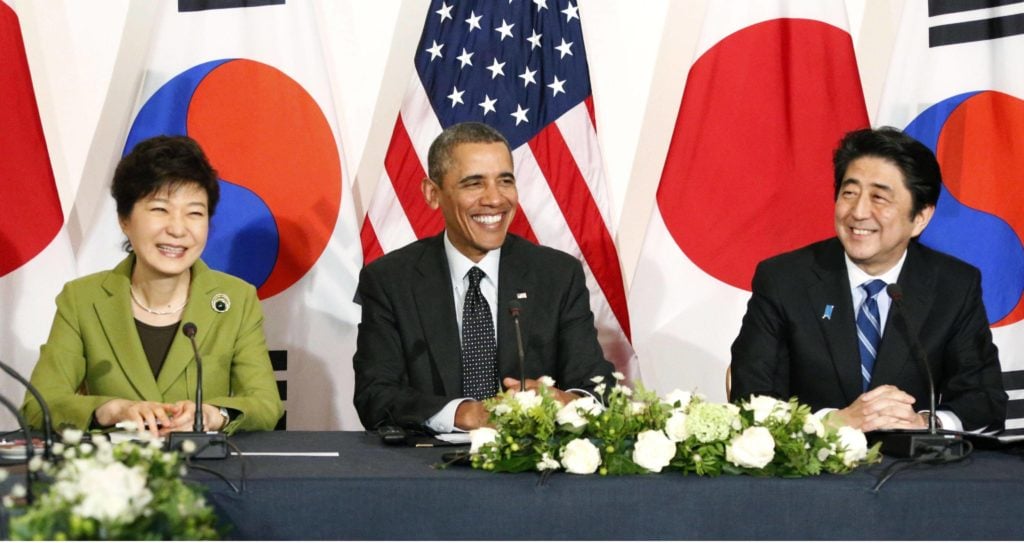
Nice grouping. Can we tie them together better?
President Obama’s visit to Hiroshima at the end of May is likely to trigger various reactions, including the old argument whether or not the US should apologize for having used nuclear weapons. While that academic question is eternal, thoughtful reflection can define its parameters. Other approaches are more forward-looking: Michael Auslin of the American Enterprise Institute recommends using the forum to re-commit the world to preventing war. The Financial Times calls for an end to nuclear weapons, and better ties with Japan. This position seems in line with President’s.
Reconciliation talks with a World War II adversary is an old routine that comes with the Japanese-U.S. bilateral relation. But while alliances and democratic government officially define Japanese-American, and German-American closeness, societies remain traumatized and bitter about the past. America’s firmest allies include nations that committed monstrous atrocities seventy years ago, and on whom we inflicted terrible suffering, using the tools of war of that bygone world. There cannot be enough reconciliation between us and Germany and Japan.
We share much more with those countries than alliances and tangible commonalities of democracy, rule of law, and economic strength. The real cement between us, and other nations—in Europe, Asia, Australia, and the Americas—is a culture of freedom. Persons in all these countries are secure in their rights and the discretion to choose how they live. They implicitly share the feeling, partly due to their broad freedom from economic fear, that they can pursue their dreams.
This is the culture of the future, in which humanity steps away from the world that could generate world wars and toward one where people can pursue fulfillment. The U.S. was conceived in the tenets that underwrite this vision. These friends and allies prove both that countries can embody our values in their own cultures, and that free peoples will recognize the primacy of their freedom and act together to protect and nurture it.
This vision, this culture, and these tenets are under attack today. The adversaries certainly include the fundamentalists of ISIS and Iran. They also include illiberal movements in nations of all stripes—Austria being the most recent to take that turn in its government. These movements often feed on visceral nationalism, such as the sentiment of some Japanese who sanitize Japan’s wartime conduct while decrying the atomic attacks.
Ever-deepening conciliation with Japan reinforces the commitment to our shared values, and paints the angry sentiments precisely as atavistic emotions. Reinforcing the emotional environment of free culture is the most effective weapon against illiberalism.
Reconciliation can also aim for its own proliferation. If Americans and Japanese have an issue around Hiroshima, Koreans have their own issue over the “comfort women” used by Japanese forces. Cultural bitterness in that relationship poses an overt political risk to relations between two free societies.
At Hiroshima, America should project a tone of deepening conciliation between modern free societies over past horrors. Generally easing the old pain to bolster free peoples’ cultural commonality will ease paths to further reconciliations, among other countries. True peace among now-free ex-adversaries will refute the illiberal axiom that nationalism overrides other aspects of human identity.
Reconciliation among the free societies is compatible with the idea of a nuclear free world. But first, it addresses a real need that should be a primary theme of the President’s Hiroshima visit. The emotional ties among free countries cannot be taken for granted. We can talk of ending end war and abolishing nuclear weapons endlessly. But we should take active steps available now to solidify common understanding among free people. This will set humanity on the best path to achieve our ideals.